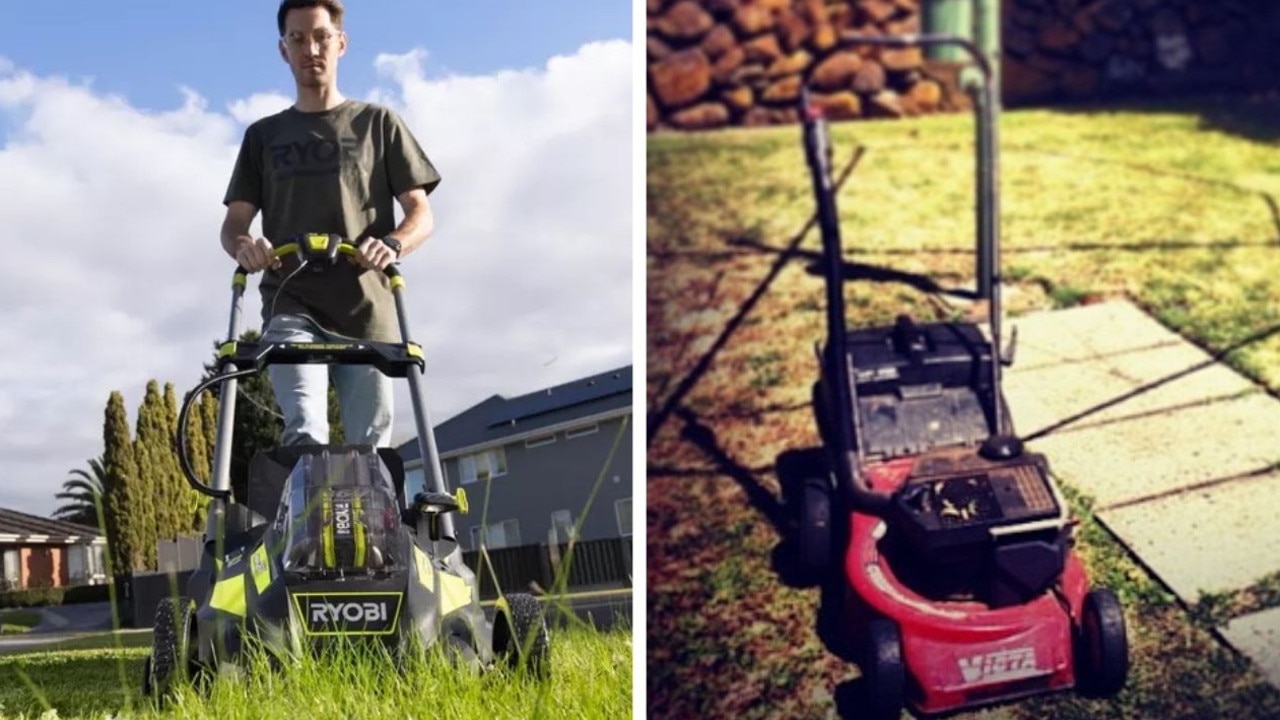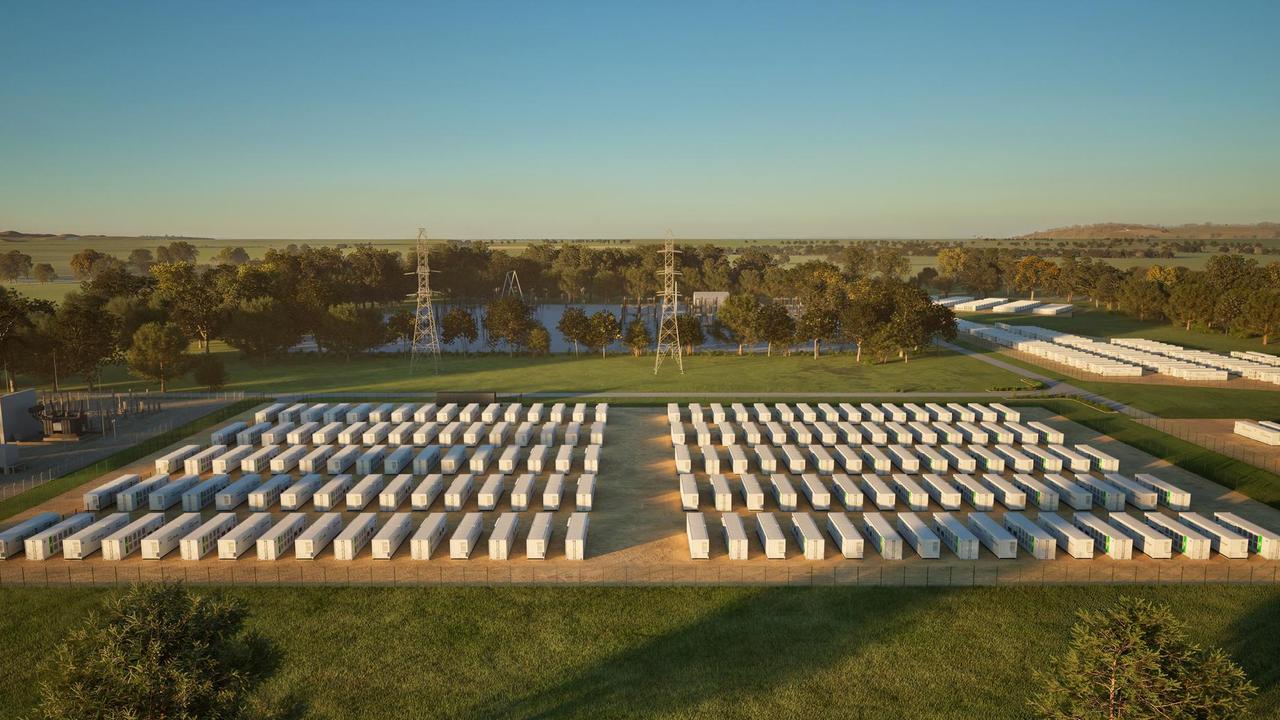Only a recession can make a ‘ruthless’ Victoria great again
Not all is lost. Victoria has a clear competitive advantage across four world-beating exports and these mines won’t run dry. But first there will be pain.
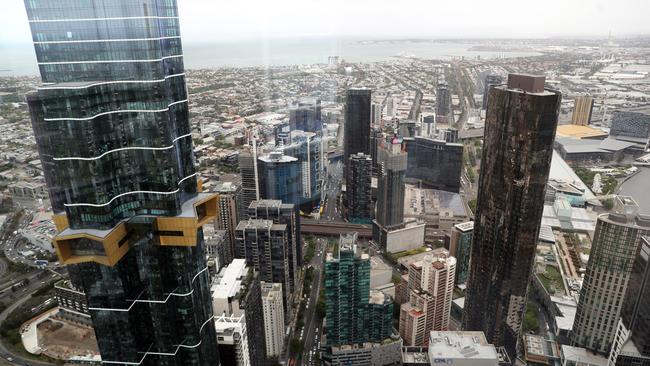
Business
Don't miss out on the headlines from Business. Followed categories will be added to My News.
Ryan Stokes recently told The Australian, it “feels like a recession” in Victoria. His businesses have a big footprint across the state, with names like Coates, Beach Energy and media operator Seven.
Matt Comyn, who heads up the nation’s biggest lender, Commonwealth Bank, also says economic conditions and sentiment “seem a bit weaker in Victoria” stacked up against the rest of the country.
Key indicators in CBA’s own book include loan payments are lagging and softer spending. Figures this week show unemployment in Victoria, at 4.6 per cent, is higher than the national figure of 4 per cent. Even numbers from homegrown Transurban, the operator of CityLink, show commuter traffic had flatlined in the past six months while traffic in other cities such as Sydney and Brisbane is growing again. It’s not a pile-on. The numbers point to a downturn under way.
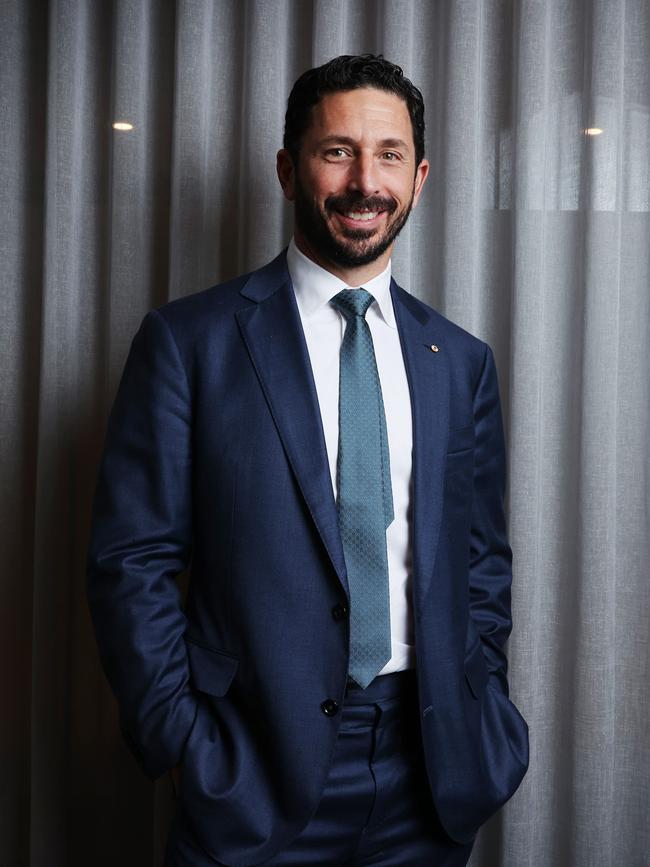
A tired Allan/Andrews state government is now into its 11th year and is looking for ideas.
Worryingly, it is trapped in a populist cycle and mostly playing defence. Without the crutch of a commodity super-cycle or international tourism that are supporting the northern states, the RBA’s harsh interest rate rises delivered an even harder shock to the state. Business and households were already vulnerable coming out of the extended pandemic, and the double blow of rates and inflation hurt.
With money no longer free, the state is under pressure to cut debt, and is starting to slash a bloated public workforce.
Two of the state’s four monster and seemingly endless projects – the West Gate Tunnel and the Metro Tunnel – are both scheduled to open this year. But without the cushion of full-throttle spending any more, the state will certainly feel more like it has entered a recession.
This is a good thing. Recessions have a way of quickly cleaning up and sorting out economies. And like Victoria in the 1990s when it was painfully forced to pivot away from a low-value manufacturing past, a new downturn will force the state to reboot and refocus. And hopefully the government gets out the way.
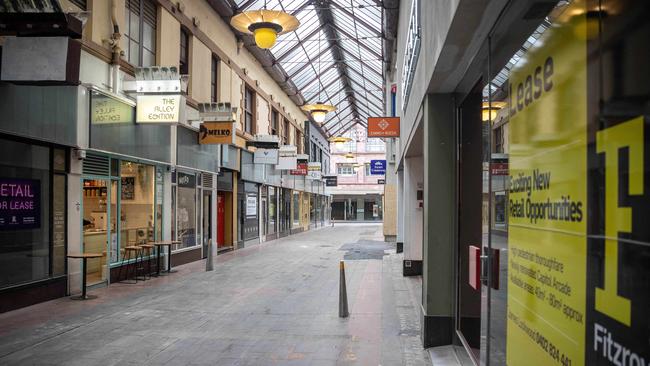
Just like the three recessions to hit the US in the past two or so decades, these moments give the tough love needed to spark dynamism and move forward.
Victoria has a greater competitive advantage across four world-class exports than any other state. And unlike iron ore or coal, these mines won’t run dry. Rather, they are built around people resources. All that’s needed is a long-term determination to lean into them. But the window for the opportunity won’t stay open forever.
Taiwan, with few natural resources but a highly skilled workforce, made a strategic choice to concentrate on computer chips in the early 1980s. The industry was given the priority and the entire economy fell into place around it. Today, smart chips are the nation’s biggest wealth creator. The industry and associated tech represents more than 25 per cent of its GDP and made Taiwan integral to global supply chain.
Victoria needs to embrace its world-class strengths: Education, technology, capital and healthcare. These four areas fit into the longer-term global themes: An ageing Western population (healthcare); rising global middle class (education); the need to fund growth and retirement (capital); and digitisation (technology).
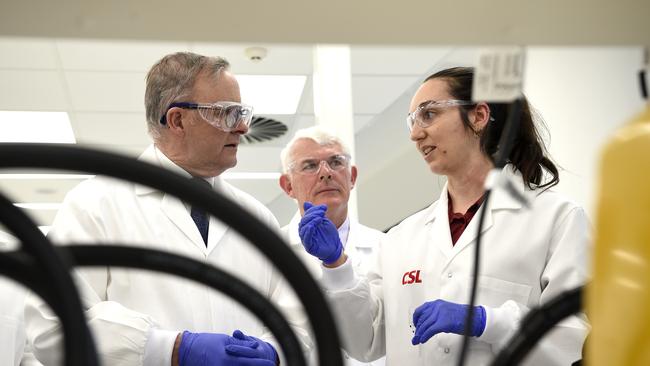
These four areas should be ruthlessly executed. And yes, it will come at a further and potentially big cost. Slashing payroll taxes in nominated areas would be a fast start. Cut regulation and then deliver the right physical infrastructure around it.
Forget about an airport train, put real high-speed transport links between the city and the universities. These are Australia’s iron ore mines of the future. Do this and everything will follow.
Despite all the noise, the state’s credit rating is sound. Its AA rating is on par with the UK and EU, and sits in the same band as the US. Victoria outranks France on the credit scores. When it grows, the debt load will come down.
Education is already the state’s biggest export, generating about $15bn in annual income. The big four – Monash, Melbourne, La Trobe and RMIT – can do a lot more to push out globally. The starkest example of this is RMIT – the only private university operator inside Vietnam. Its logo is plastered across the Saigon skyline and its sprawling modern campus sought after among a fast-growing middle class.
Easy wins
Healthcare is a no-brainer with the city home to one of Australia’s biggest and brightest companies, the global pharma and healthcare manufacturer CSL, which has a near-$1bn research and development spend each year mostly at its new facilities on the edge of the CBD.
Other names such as Pro Medicus, PolyNovo, Medibank, Sigma and countless smart biotech and health breakthroughs have come out of the city. Yet there’s little by way of joining the dots.
Capital is another easy win, with the city home to more long-term savings than potentially any other city in the world outside New York, Boston and London.
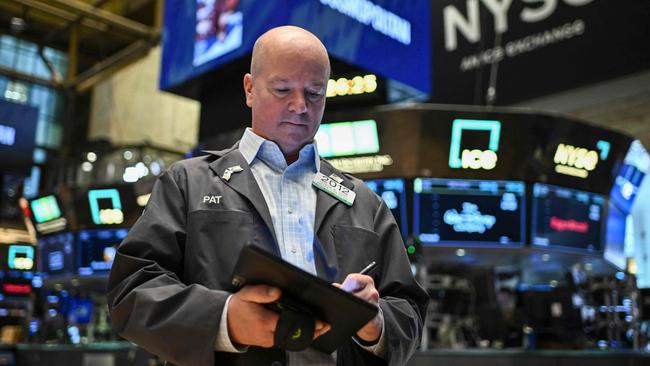
Names like AustralianSuper, Industry Funds Management, Cbus, Hesta, UniSuper and Hostplus have their own critical mass with hundreds of billions of dollars under management. Add the Future Fund, which is expected to get to almost $400bn by early next decade.
Their sheer financial gravitational pull forces the world’s biggest asset managers as well as global CEOs to stay close to them. This means slipping into Melbourne. Highly regarded former Morgan Stanley boss James Gorman is a big advocate of the city he grew up in, and the well-connected Wall Street boss should be tapped to play a bigger role.
The mass of capital builds an entire ecosystem – alternative asset management, infrastructure funding and venture capital – which all play a role in making more funds available for risk takers and builders. There’s little wonder the logo of Sydney’s Macquarie also dominates the Melbourne skyline.
A planned visit to Washington next week by dozens of cashed-up super funds led by Australian Super, Cbus and IFM is an opportunity lost to finance badly needed infrastructure at home.
BlackRock founder Larry Fink, who heads the $US11.6 trillion investor, this week pointed out Australia had fallen short in “unlocking capital” sitting in its own superannuation system: “In Australia, you have this incredible retirement system, the best in the world – but too much of the economy rests on four or five banks.”
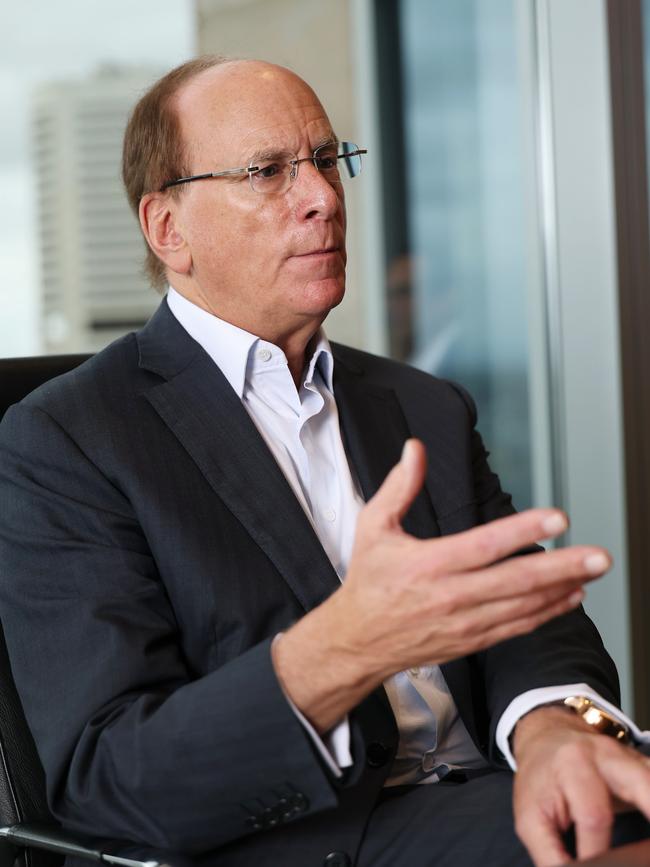
In contrast, the US economy is powered by private and pension money sitting outside banks.
Technology is the final leg for the state to pursue. Victoria had some of its most innovative years coming out of the dot.com era when the tech wave saw names such as REA, Carsales and even Seek thrive to become some of the nation’s biggest companies.
Based out of “Silicon Yarra”, each of them are expanding offshore. There’s no doubt, these are now the Generation Xers of Australia’s tech scene, and Sydney is delivering a new pull with names such as Atlassian, WiseTech and Canva. However, the Melbourne names have the balance sheets, the longer vision and deep pockets to invest in AI technology. The big banks ANZ and National Australia Bank, as well as Telstra, are spending billions of dollars on their own homegrown tech.
Why does it matter? Victoria represents an outsized chunk of the national economy and can set Australia up for growth when the mines run low and China’s insatiable demand for iron ore matures in coming decades. This can be a template for other states to follow for their own ultra-long-term growth goals.
Health, education, capital and tech. These are the platforms that will support generations. Pursue each one ruthlessly, Victoria.
Originally published as Only a recession can make a ‘ruthless’ Victoria great again


